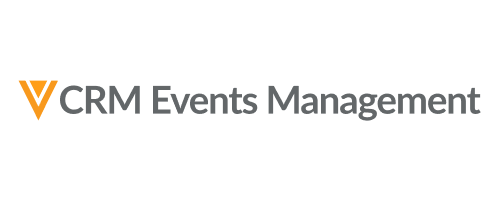GSK, Lundbeck, ROVI: Three Journeys of Unified Pharma Events Management
"With Veeva Events Management, now we are delivering an events strategy
that is easy to manage, understand, and centralize."
GSK, Lundbeck, and ROVI share how their events strategies contribute to higher-value engagement with healthcare professionals (HCPs).
ROVI: Building the foundation for expansion into Europe
For ROVI, a specialty biopharma company headquartered in Spain with ambitious growth plans in Europe, events are a primary way to engage HCPs and must be easy to organize, manage, execute, and scale.
Once a new affiliate is set up, the countdown begins on executing the go-to-market strategy. ROVI International CRM Manager Andriu Urbina says, “We need to deliver an event solution that is almost done, almost prepared, but with enough flexibility to get the affiliate on board.”
To meet this challenge, 80% of ROVI’s core events model is unified for affiliates, which leaves sufficient space for country-specific configuration and analysis. This harmonized approach allows the company to deliver events quickly and optimize the use of limited resources. “With Veeva CRM Events Management, we have a single solution to plan and deliver events while allowing us to analyze event insights and test hypotheses,” Urbina continues.
Tracking events data provides valuable insight into HCPs’ expectations and preferences. After following up on a few events with questionnaires, the team at ROVI plans to capture audience sentiment consistently and include qualitative measurements in its roadmap. “Success for us is when a doctor wants to see the rep again and attend our annual events the following year,” says Urbina.
Lundbeck: Centralized events management fueling the omnichannel transformation
Lundbeck, a global biopharma company headquartered in Copenhagen specializing in brain diseases, began its digital transformation in 2020.
The company co-creates its events strategy with markets and seeks to scale its omnichannel reach. To transition toward a centralized approach, Lundbeck selected Veeva CRM Events Management.
Michael Foster, global senior CRM manager at Lundbeck, explains: “We wanted to roll out a common solution that could be tweaked to meet various countries’ needs. Now we are delivering an events strategy that is easy to manage, understand, and centralize.”
Lundbeck has rolled out its plan in several markets to date. To inform its next steps, Lundbeck is currently testing a robust data analytics program, experimenting with different approaches to determine what yields the most valuable insights.
Lundbeck is also gradually implementing Veeva CRM Events Management to enhance its virtual and hybrid events capabilities. The company plans to use the insights gained to fuel its omnichannel transformation. They build this transformation on top of customer understanding by looking at data and integrating channels and functions. The ultimate goal is to serve the customer in a personalized way, producing best-in-class customer experiences.
GSK: Scaling HCP events across 50+ markets
Over the past four years, GSK has doubled down on high-value events management, setting goals to bring more continuity and relevance at all HCP touchpoints. Insights gathered during other activities enable the events team to personalize HCP engagement.
Dave Yates, GSK’s Director of Global Product Management, says: “Because of the duration of events and how much interactivity we can get at events, they are great opportunities to learn from and inform the next interaction.”
Before implementing Veeva CRM Events Management, GSK markets used a variety of legacy systems. Standardizing the events approach across all 68 markets helped bring clarity and consistency to event delivery. It also enabled the company to measure metrics such as spend, attendance, number of events, and use of speakers.
Bringing all markets onto the same platform means collecting and analyzing qualitative and quantitative event data is now possible. For instance, GSK now distributes a simple two-question survey to event attendees via QR code:
- Would you recommend this event to a colleague?
- How likely are you to change your clinical practice based on what you’ve heard now?
This event sentiment analysis informs tailored post-event activities with attendees. “For the first time, we can see at an event level — and sometimes down to an individual level — how people feel about our events,” said Yates. “That helps us drive next-best actions and prioritize and follow up with customers.”
By bringing together CRM and events data, pharma sales and marketing teams gain an enhanced understanding of HCP behavior. That understanding helps them design and deliver events that bring HCPs together to connect with their peers and learn about promising new therapies.
Event technology directly impacts the execution of every event a biopharma company runs. See how this guide can help you maximize your event investment.
More Customer Stories
Explore and learn more
Watch Video
ROVI: Building a Global Approach to Events as Part of Omnichannel Vision

Learn How
Bristol Myers Squibb and GSK: How to Integrate HCP Events into an Omnichannel Journey

Read How They Gained Insights
Boehringer Ingelheim Gains New Customer Insight Across Global Events
